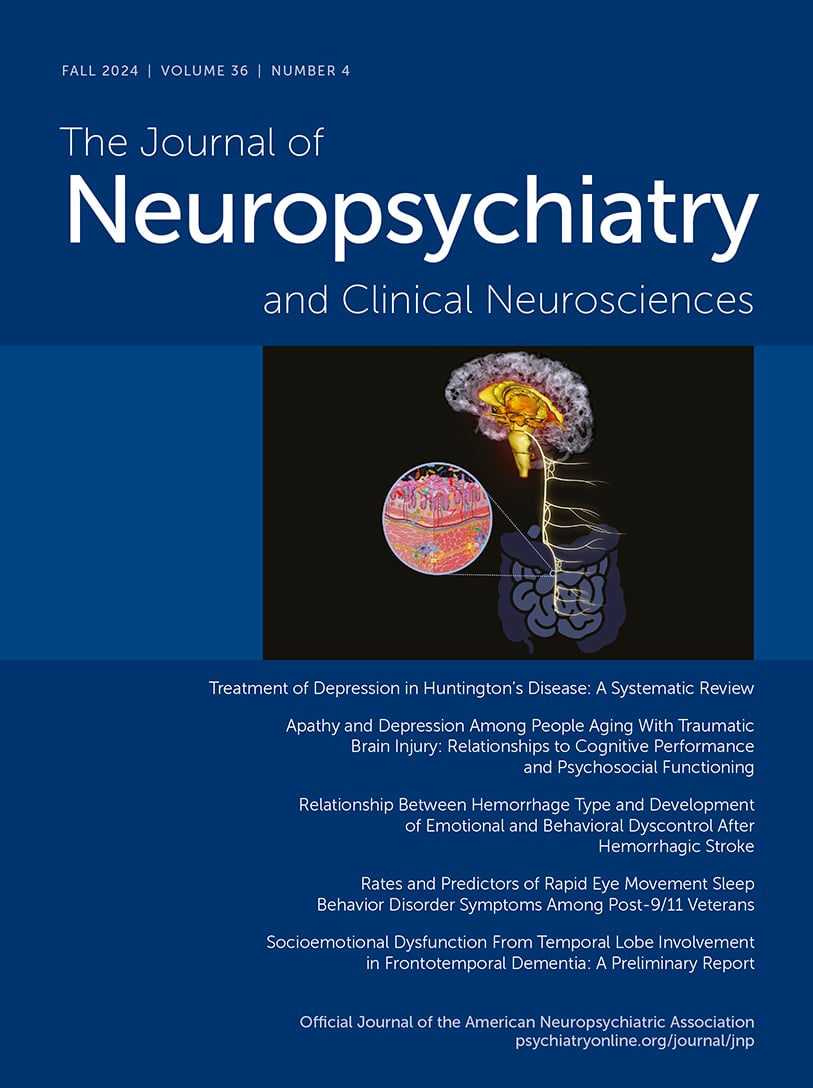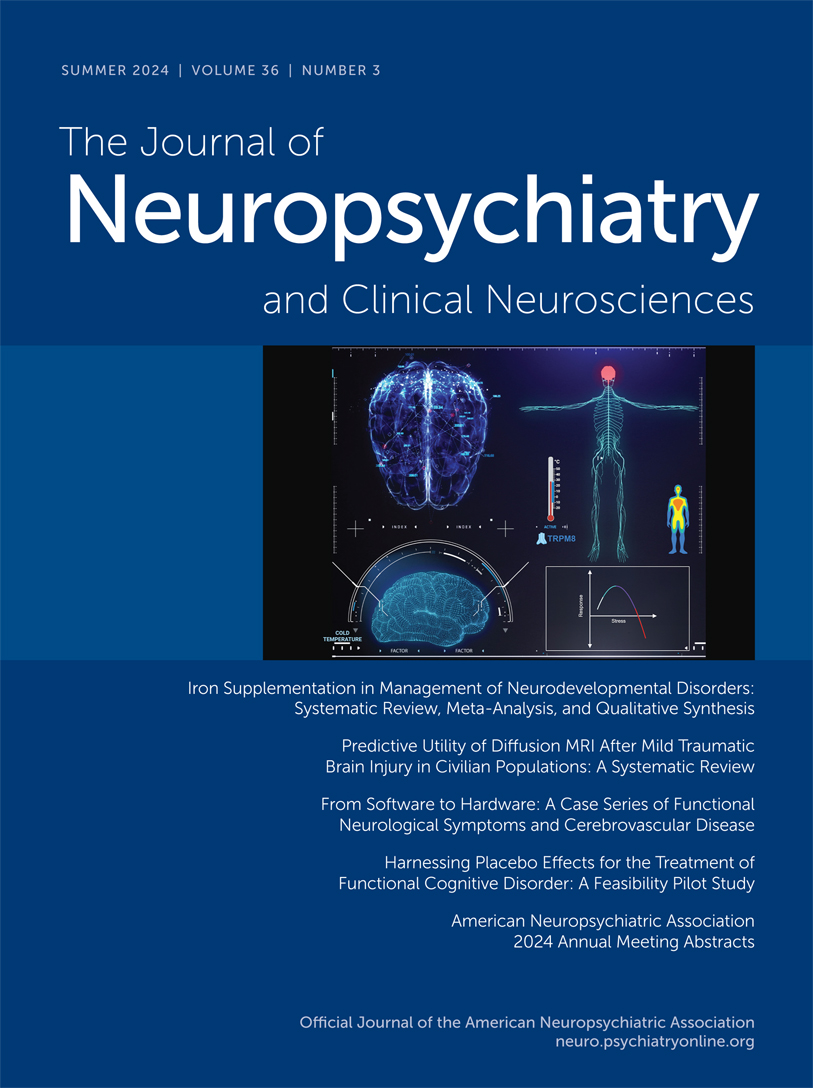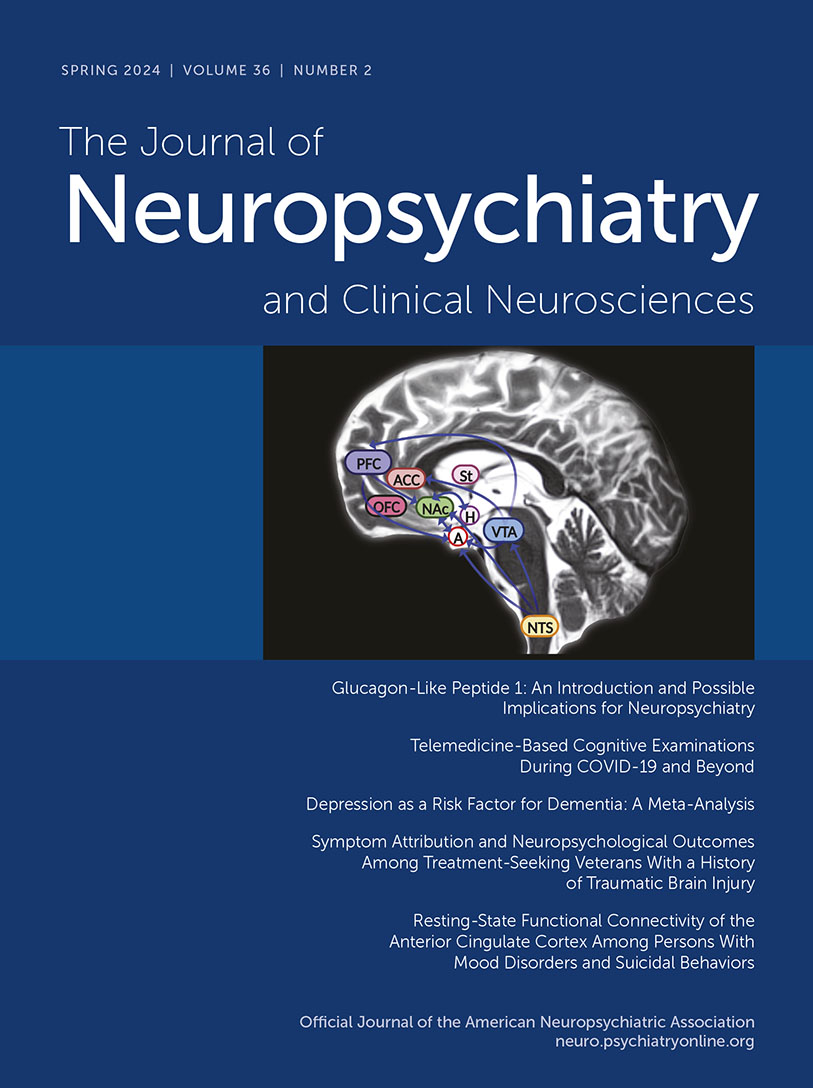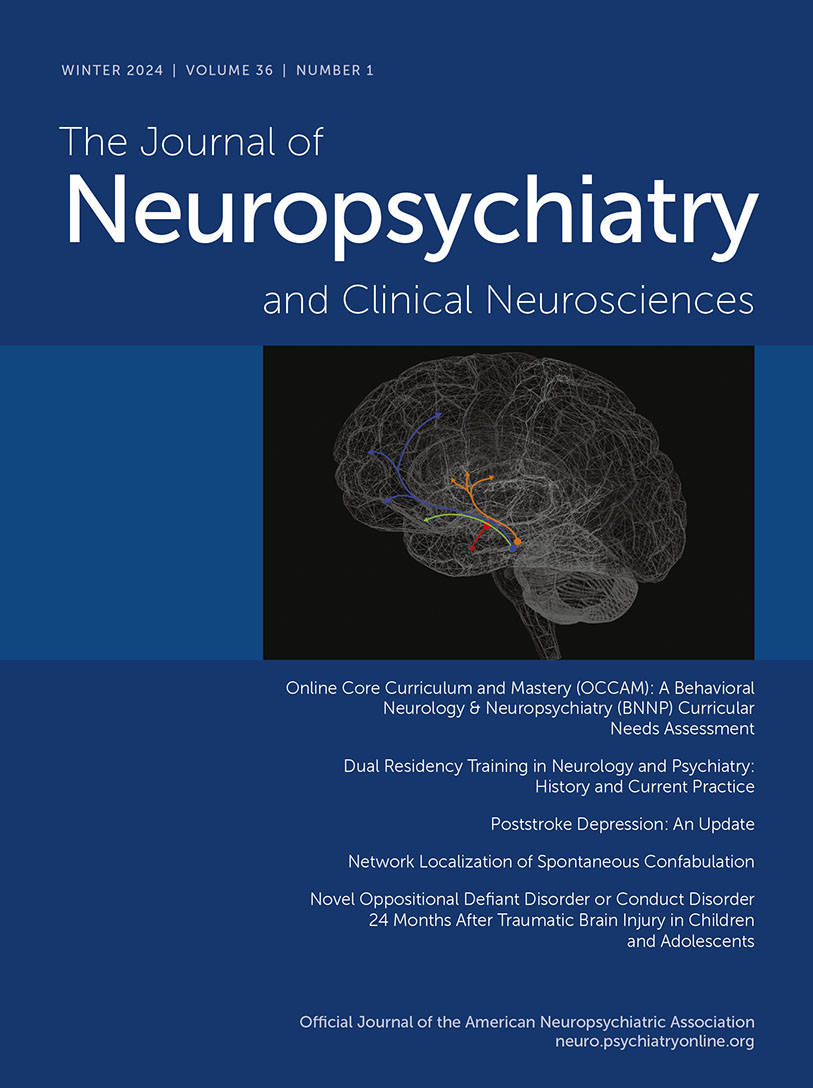The Journal of Neuropsychiatry and Clinical Neurosciences
- Volume 32
- Number 2
- April 2020
Windows to the Brain
Special Articles
Publication date: 30 August 2019
Pages109–124Objective: Neuropsychiatric symptoms are known to increase caregiver burden and decrease patient quality of life among patients with Huntington’s disease. Functional capacity is an outcome commonly used in Huntington’s disease clinical trials to quantify ...
https://doi.org/10.1176/appi.neuropsych.18120319Treatment in Behavioral Neurology & Neuropsychiatry
Publication date: 30 August 2019
Pages125–131Psychogenic nonepileptic seizures (PNES) are a highly disabling disorder frequently encountered by neurologists, psychiatrists, and emergency medicine physicians. There is accumulating evidence for the efficacy of psychological therapies, yet the majority ...
https://doi.org/10.1176/appi.neuropsych.19020045Regular Articles
Publication date: 18 September 2019
Pages132–138Objective: The authors tested the hypothesis that a combination of loss of consciousness (LOC) and altered mental state (AMS) predicts the highest risk of incomplete functional recovery within 6 months after mild traumatic brain injury (mTBI), compared ...
https://doi.org/10.1176/appi.neuropsych.18120379Publication date: 07 October 2019
Pages139–146Objective: In recent years, it has been proposed that depression represents one clinical subtype of chronic traumatic encephalopathy (CTE). This is the first study to examine the specificity of the research criteria for the clinical diagnosis of CTE in men ...
https://doi.org/10.1176/appi.neuropsych.19010021Publication date: 07 October 2019
Pages147–153Objective: Veterans with posttraumatic stress disorder (PTSD) frequently report dream enactment behavior (DEB). Although DEBs are associated with PTSD symptoms, their relationship with other sleep disorders, including REM behavior disorder, warrants ...
https://doi.org/10.1176/appi.neuropsych.19010009Publication date: 18 September 2019
Pages154–160Objective: The authors examined and compared the clinical presentation of CSF positive and negative N-methyl-d-aspartate receptor (NMDAR) antibody. Methods: The investigators performed a retrospective chart review of NMDAR-antibody-positive cases (serum or ...
https://doi.org/10.1176/appi.neuropsych.19030079Publication date: 03 July 2019
Pages161–167Objective: Performance validity tests (PVTs) and symptom validity tests (SVTs) are necessary in clinical and research contexts. The extent to which psychiatric distress contributes to failure on these tests is unclear. The authors hypothesized that the ...
https://doi.org/10.1176/appi.neuropsych.17110340Publication date: 03 July 2019
Pages168–174Objective: Apathy, defined as reduced goal-directed behavior, is a frequent symptom in mental and neurological disorders but has been poorly studied in individuals with obsessive-compulsive disorder (OCD). The primary aim of this study was to examine ...
https://doi.org/10.1176/appi.neuropsych.19010018Publication date: 03 July 2019
Pages175–184Objective: The prevalence of cavum septum pellucidum (CSP) in mental disorders, particularly schizophrenia spectrum disorders and mood disorders, remains uncertain. The authors used a meta-analytical approach to determine the prevalence of CSP in mental ...
https://doi.org/10.1176/appi.neuropsych.18030060Clinical and Research Reports
Publication date: 09 August 2019
Pages185–190Objectives: Adult patients with epilepsy have an increased prevalence of major depressive disorder (MDD). Intracranial EEG (iEEG) captured during extended inpatient monitoring of patients with treatment-resistant epilepsy offers a particularly promising ...
https://doi.org/10.1176/appi.neuropsych.19030081Publication date: 09 August 2019
Pages191–195Objective: The primary objective of this preliminary study was to examine the impact of NFL play on interregional functional connectivity between two brain regions, the supramarginal gyrus (SMG) and the thalamus, identified as having higher binding of [11C]...
https://doi.org/10.1176/appi.neuropsych.18110274Publication date: 09 August 2019
Pages196–200Objective: Behavioral treatments for migraine prevention are safe and effective but underutilized in migraine management. Health message framing may be helpful in guiding patients with treatment decision making. The authors assessed associations between ...
https://doi.org/10.1176/appi.neuropsych.19030056Case Reports
Past Issues
View Issues Archive
Vol. 36 | No. 4

Vol. 36 | No. 3

Vol. 36 | No. 2
